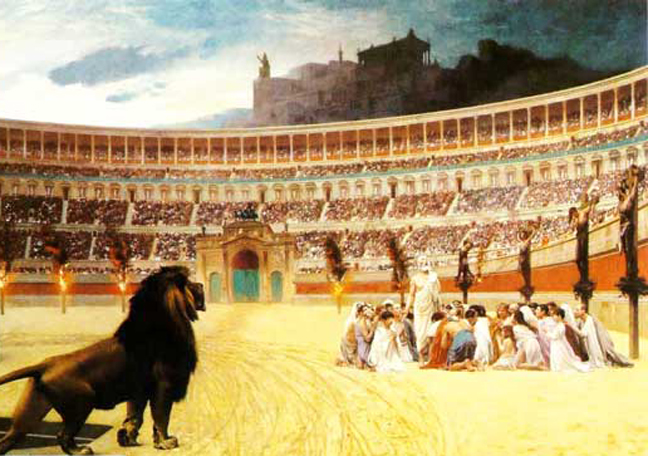OnePeterFive has obtained the permission and full translation of the original publisher of an "Open Letter to Pope Francis From a Former Member of the Roman Curia. It is signed "A Chaplain of Your Holiness," meaning, it was written by a Monsignor. To protect his superiors, he has determined it necessary to stay anonymous.
The letter is a direct and frontal wake-up call to the Pope and to us. I will give the headings but for the rest, please visit OnePeterFive.
http://www.onepeterfive.com/open-letter-to-pope-francis-from-a-former-member-of-the-roman-curia/
Holy Father,
On the occasion of your Christmas Allocution in 2014, you called on your curial employees to make first an examination of conscience. Indeed, Advent is an occasion to reflect upon the promises of God and what He expects from us. You claimed that your employees had to be an example for the whole Church, and you then listed a several “illnesses” from which, in your view, the Curia is now suffering. At the time, I had considered this statement to be rather harsh – yes, even unjust – against so many in the Vatican whom I know personally – while you were talking, instead, as if you knew the Vatican, but either only from the outside or only from above. Nevertheless, this speech of yours has actually inspired me to write this letter to you. Following your own example, I shall omit to speak about all the good that you are doing and are speaking and I shall thus only list those aspects of your exercise of the papal office which seem to me to be problematic:
1. An emotional and anti-intellectual attitude of yours which is often tangible and which has difficulties in dealing with theories and doctrines
The alternative to the Teaching Church is the Arbitrary Church, and not the Merciful Church. Among not a few of your own chosen employees and close counselors, there is to be found a true lack of competence, both in teaching and in theology; these men .. think rather all too often in pragmatic and political terms. ...
2. Authoritarianism
You are distancing yourself from the wisdom which is preserved in the Church’s traditional discipline, in Canon Law, and also in the historical practices of the Curia. Together with your disdain for (supposedly) theoretical teaching, this propensity leads to an authoritarianism of which even the founder of your Order of Jesuits, St. Ignatius himself, would not approve. ...
3. A populism of change
Today, it is popular to call for change. However, especially the Successor of Peter has to remind himself and others of that which changes only slowly, and even more so of that which does not change at all. Do you really believe that the approval which you receive from the opinion-makers in the realm of politics and of the media is a good sign? ...
4. Your own conduct is seen as a critique of how your (often canonized) predecessors have lived, talked, and acted
I cannot recognize how this attitude comports with the humility which you have so many times invoked and demanded. ... Your conduct implicitly proposes the idea that you intend to re-invent somehow the Petrine Office. ...
5. Pastoralism
Only recently, you said that you especially like those parts of the papacy where you can act like a pastor. Of course, neither a pope nor a pastor should raise any doubts as to whether the Church is following the teaching of Christ ...
6. Exaggerated display of the simplicity of your own way of life
Of course, you want to set an example – but is it better for you yourself to take care of all kinds of daily chores? ...
7. A particularism which often subjugates the goals and purposes of the Universal Church under the viewpoints of only a part of the Church
This attitude appears nearly comical with regard to a pope. ...
8. An urge for constant spontaneity
A lack of professionalism is not a sign for the working of the Holy Ghost. Expressions like “to breed like rabbits,” or “Who am I to judge…?” ...
9. Lack of clarity about the interconnectedness of religious, political, and economic freedom
Many of your statements indicate that the state should rule more, control more, and be responsible for more areas, ... history has proven wrong the idea that the state can take care of everything. ... The welfare state can also become too powerful, and with it, too paternalistic, authoritarian, and illiberal.
10. Meta-Clericalism
On the one hand, you show very little interest in the clergy, on the other hand, you criticize a clericalism which is more of a phantom than something that is real. .... Like me, many others have difficulties with the way you sometimes talk and act. But that can be fixed, if it becomes clear that you listen to what others have to tell you. Unfortunately, I know that you are not yet capable of dealing well with such criticism – that is why I do not put my name on this letter. I want to protect my superiors against your wrath, especially the priests and bishops with whom I have worked for many years in Rome and from whom I have learned so much. You might want to work on taking away such fears – from me and from others – or, even better, to make such letters as this one superfluous, namely, by learning something from others.
In this spirit, may you have a blessed and contemplative Season of Advent!
A Chaplain of Your Holiness








